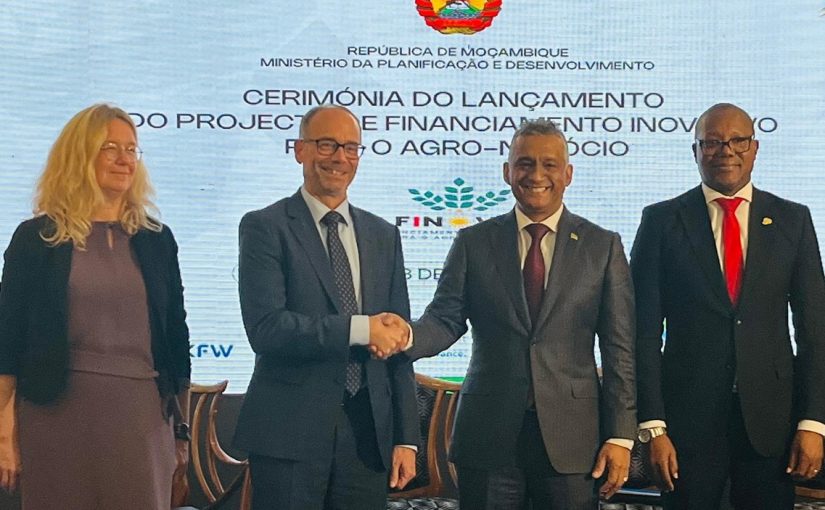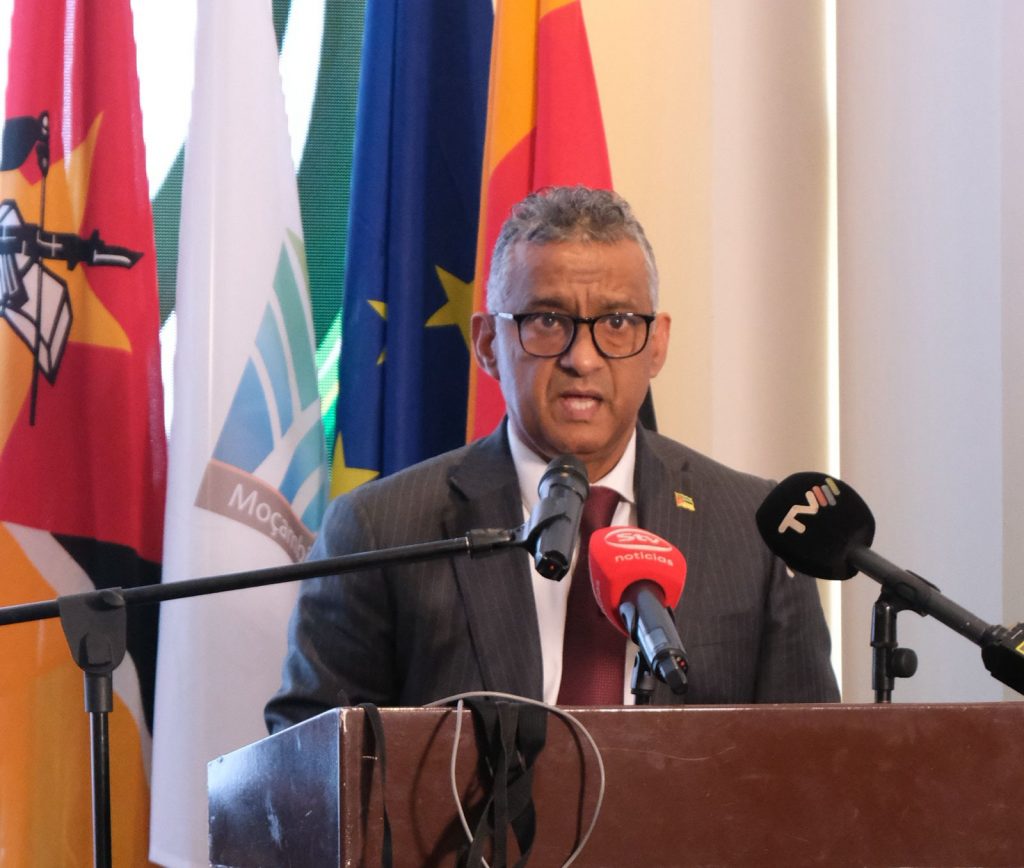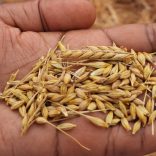Mozambique: New factory in Gurue will end dependence on imported animal feed
Germany injects €45.5 million into FINOVA to boost Mozambique’s agribusiness growth

Photo: Embaixada da Alemanha em Maputo
Germany has announced €45.5 million in financing through the German Development Bank (KfW) to boost agricultural production in Mozambique, targeting micro, small and medium-sized enterprises (MSMEs).
The sustainable rural development financing mechanism, called Innovative Financing for Agribusiness (FINOVA), was launched on Wednesday in Maputo. At the launch ceremony, Mozambique’s Minister of Planning and Development, Salim Valá, highlighted the commitment to this German fund as a means of generating more jobs and income.
Valá said that this type of financing helps to materialise the Government’s plans to replace imports and create more employment opportunities.
According to government data, of the total amount, a credit line of €33.5 million will be managed by the central bank in partnership with Absa Bank, Banco Comercial de Investimentos (BCI), Standard Bank, GAPI and Microbanco Confiança.
The remaining €12 million will be allocated to a rural financing mechanism operated by the Zambezi Valley Development Agency. This component aims to provide collateral guarantees for credit, climate insurance and technical assistance in the field, alongside training initiatives to facilitate access to the fund, Valá said.
“This initiative (FINOVA), which is primarily aimed at the Zambezi Valley provinces but not restricted to them, will cover the whole country and should be viewed in conjunction with the Mutual Guarantee Fund. The total amount of €45.5 million is intended to boost leading companies in the value chain and strengthen small rural producers,” said the Minister of Planning and Development.
According to the information provided, annual interest rates should not exceed 10%.
The minister warned that the fund is intended for companies that have been operating for at least three years, maintain commercial relationships with a significant number of small farmers, and demonstrate a viable and sustainable business model.

“These companies must promote local socio-economic transformation, comply with environmental and tax regulations, and adopt income-based climate insurance to ensure resilience to natural risks,” said Valá.
Eligible investments include land preparation, irrigation systems, warehouse construction, processing units, transport equipment acquisition and quality certifications — all aimed at fostering agricultural and rural transformation.
The Zambezi Valley Development Agency considers the agribusiness fund vital, noting that a significant portion of the economically active population lives in rural areas, relying on agriculture as their main source of income.
According to the agency’s director, Celso Cunha, the sector is characterised by “poor use of improved inputs, low levels of processing and product certification, limited access to information and weak market links, as well as inadequate transport and storage infrastructure,” all of which constrain rural development.
For the Mozambican central bank, the financing has the potential to stimulate the agricultural sector and deliver the desired tangible results.
“Despite the importance of the agricultural sector, only about 2% of the total credit granted by the financial system to the private sector is directed to agriculture, clearly revealing the need for innovative and structural solutions to finance agribusiness,” said central bank board member Jamal Omar.
Mozambique has more than 4.5 million farms, the vast majority of which are small-scale, operating on less than two hectares, Valá said.
“Only 2.5% of the cultivated area has irrigation, and less than 10% of farmers have access to formal credit or structured technical assistance,” he added.












Leave a Reply
Be the First to Comment!
You must be logged in to post a comment.
You must be logged in to post a comment.